A community of people who believe in a better world through agriculture.
It rained the night of Rodale Institute's Organic Stewardship Awards in September 2023—not just a light drizzle, but a serious, steady supply of water streaming from the sky. Honestly, did that rain have to start during dinner?
Since the gathering was held outdoors on the farm at the Institute's headquarters near Kutztown, inclement weather delayed the evening's feast and made guests run between the event tent and buffet locations to get food, sometimes standing in line under wet, gray skies. No one complained, though. The 175 attendees—farmers, chefs, educators, authors, business owners, film producers and others—understood that rain is part of the picture of farming.

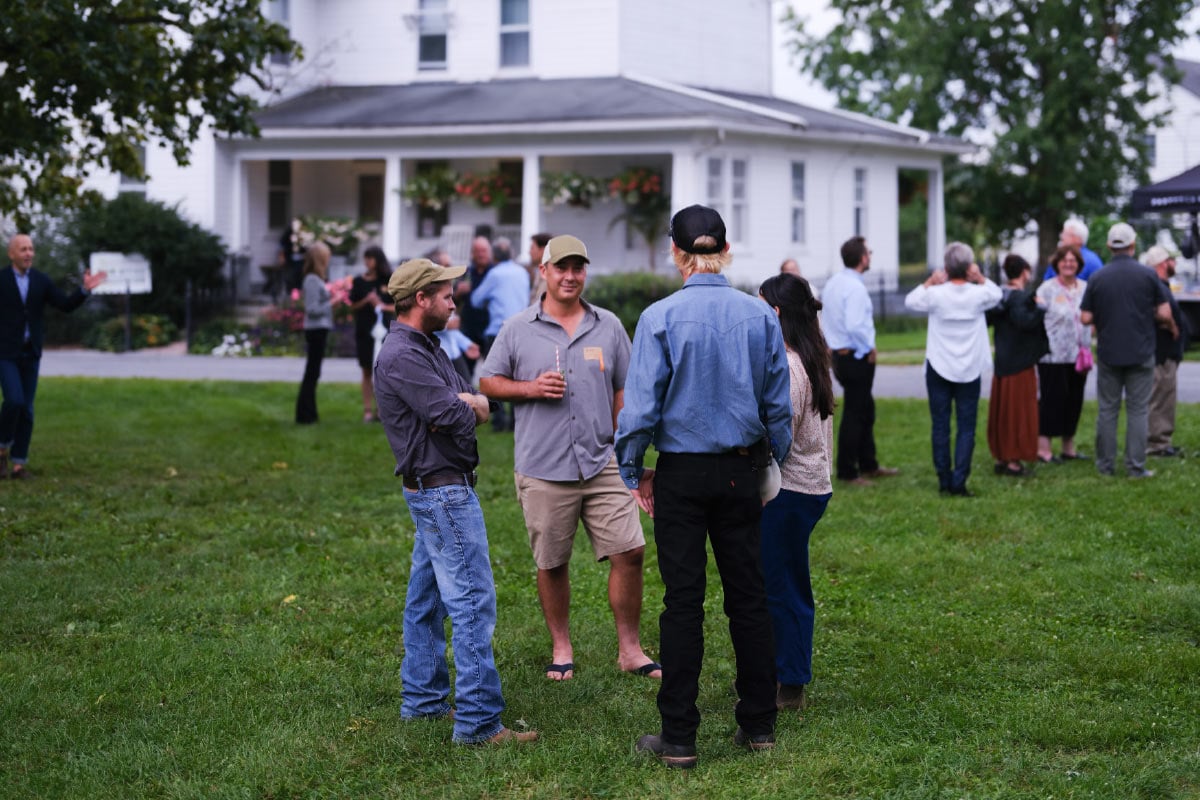
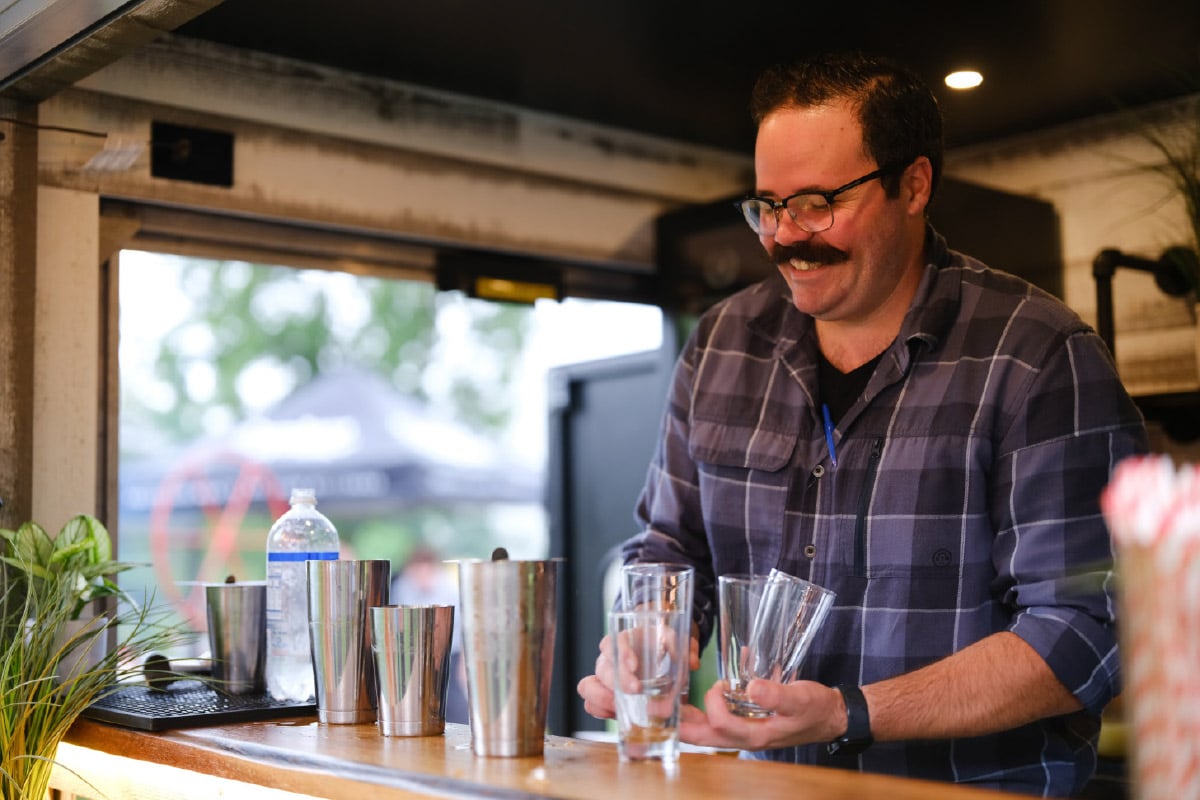
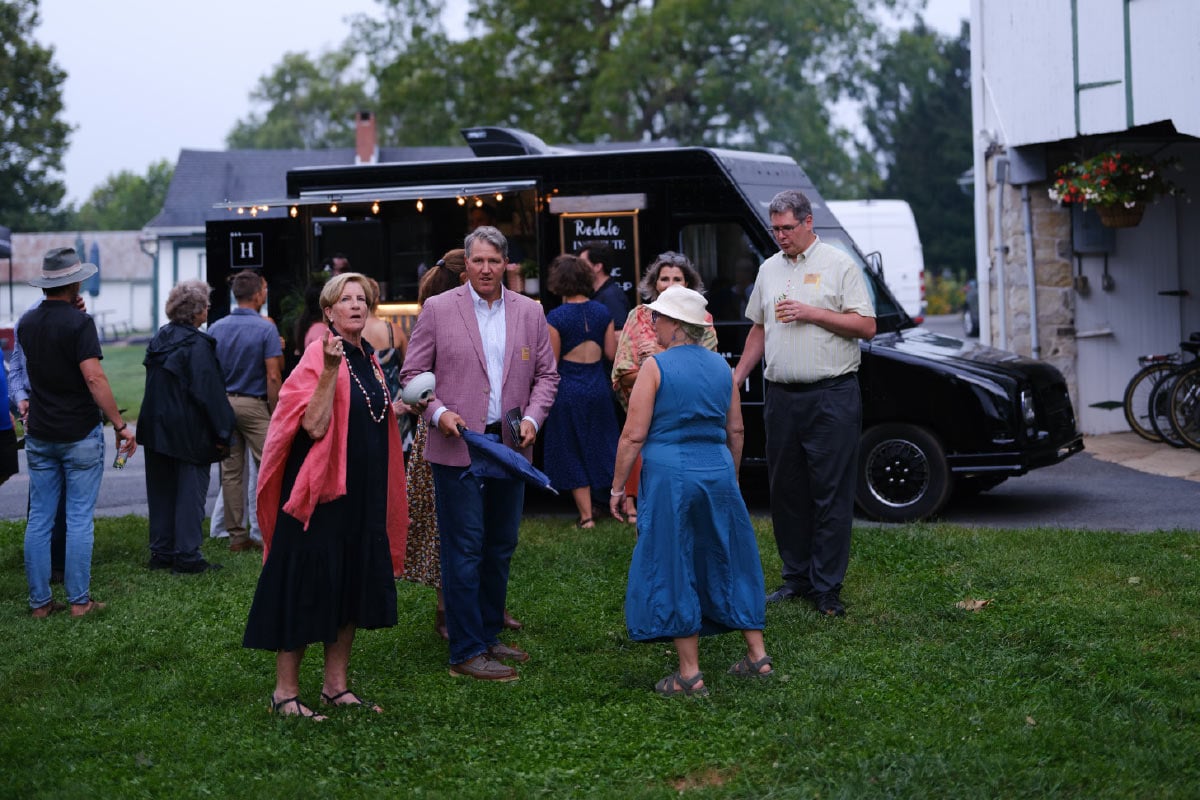

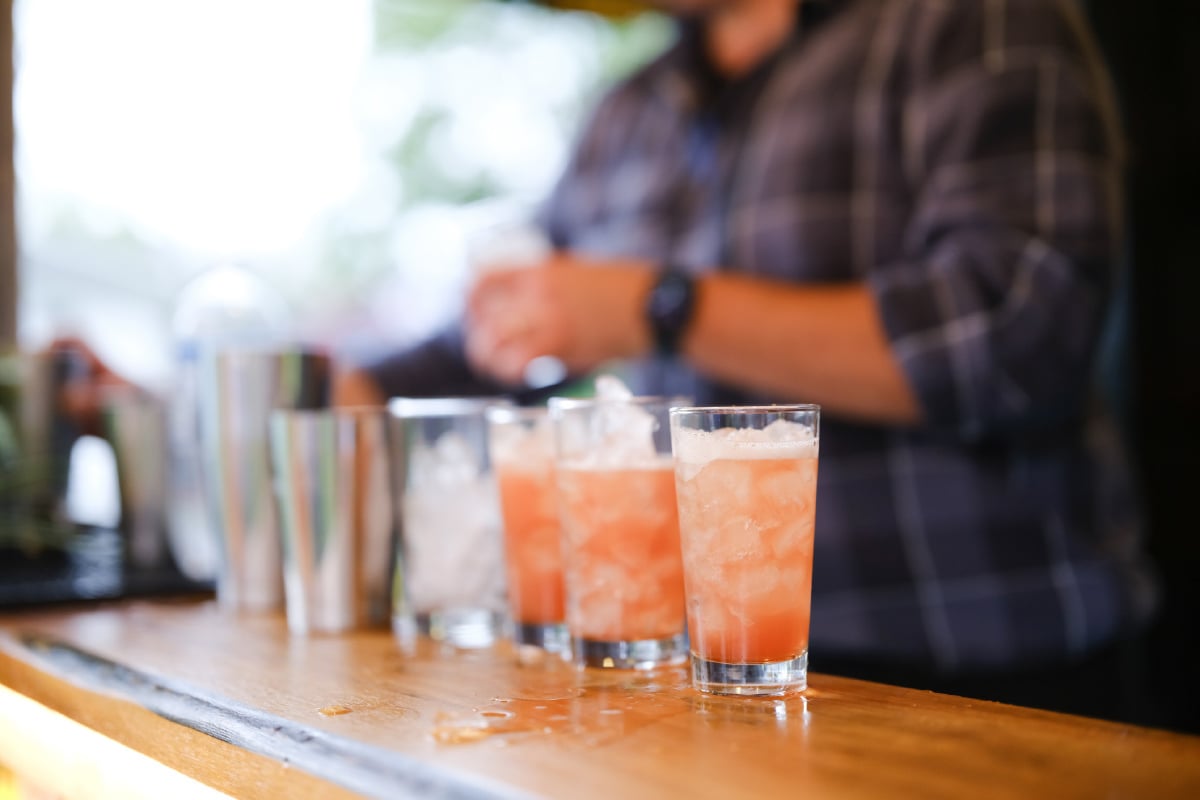
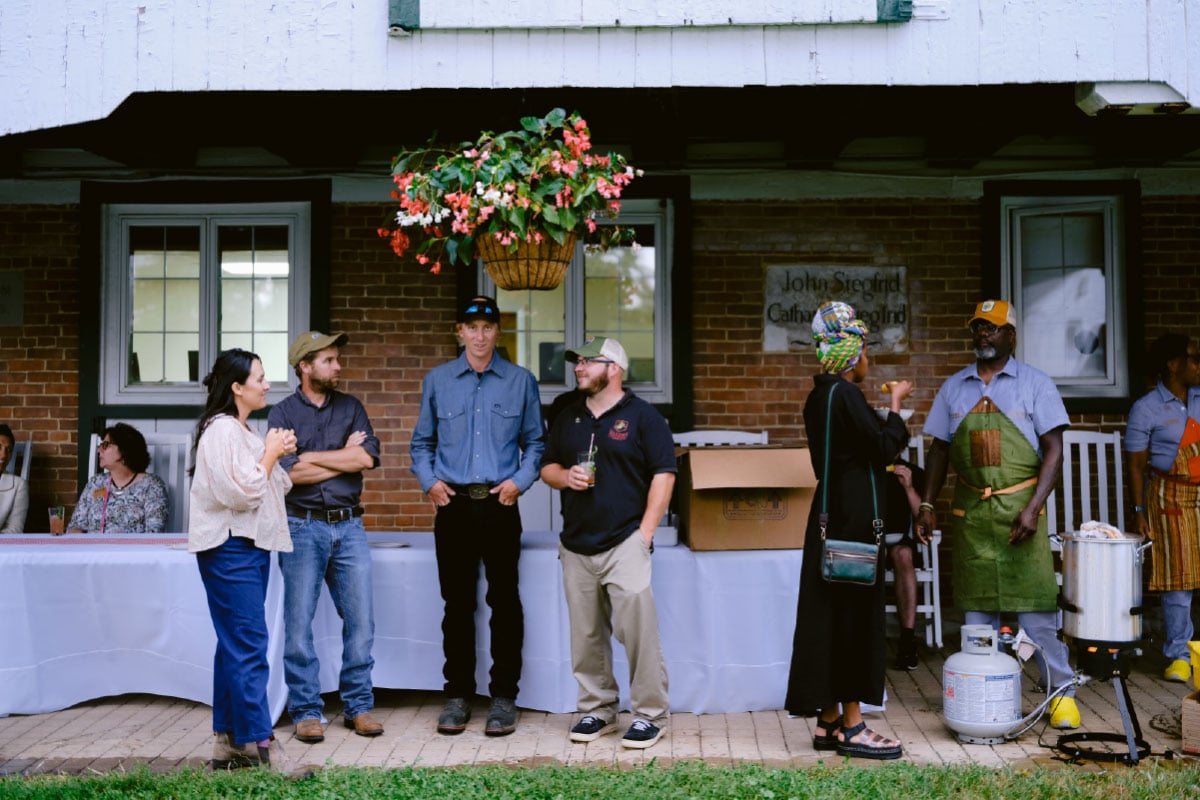
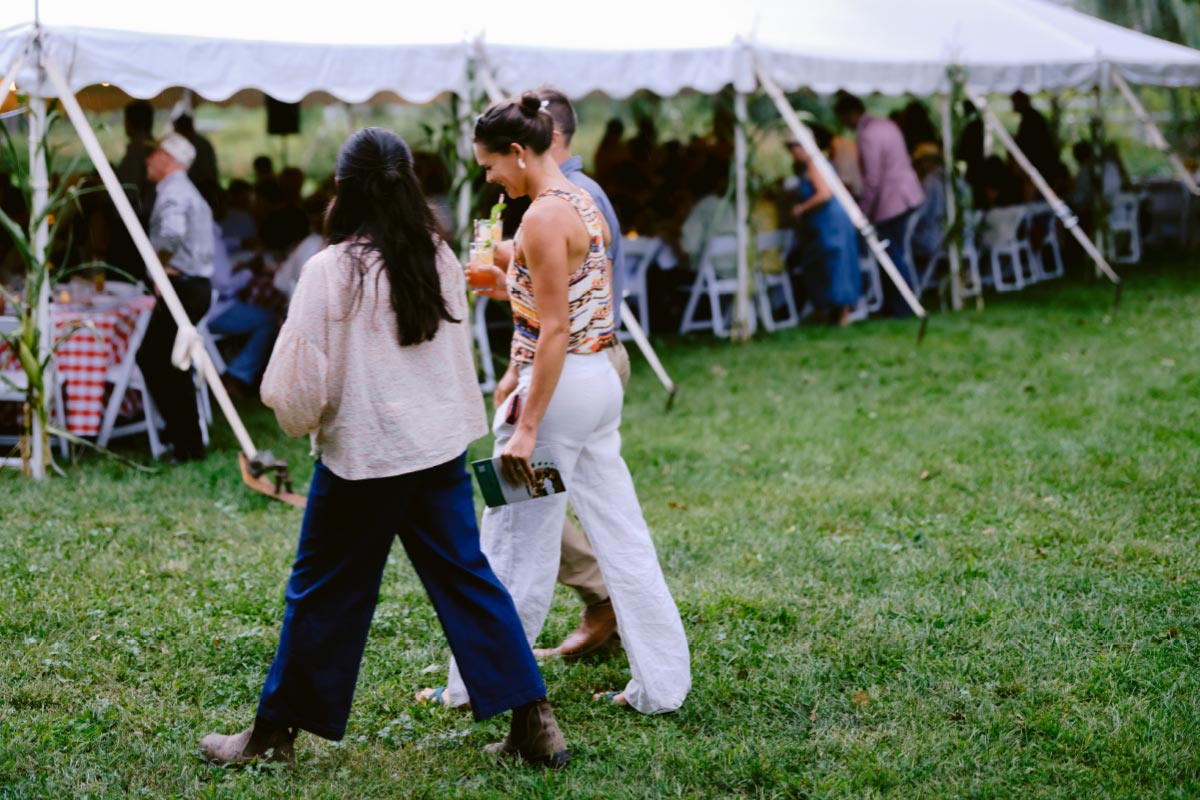
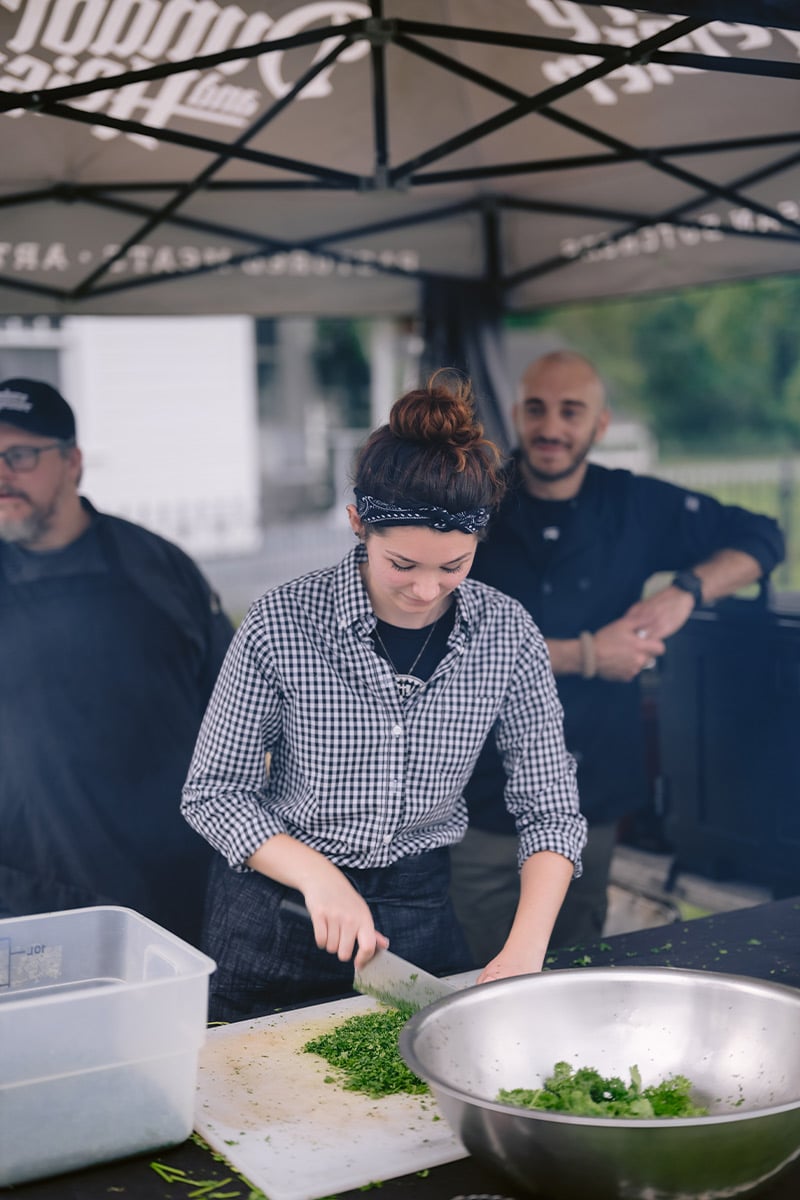

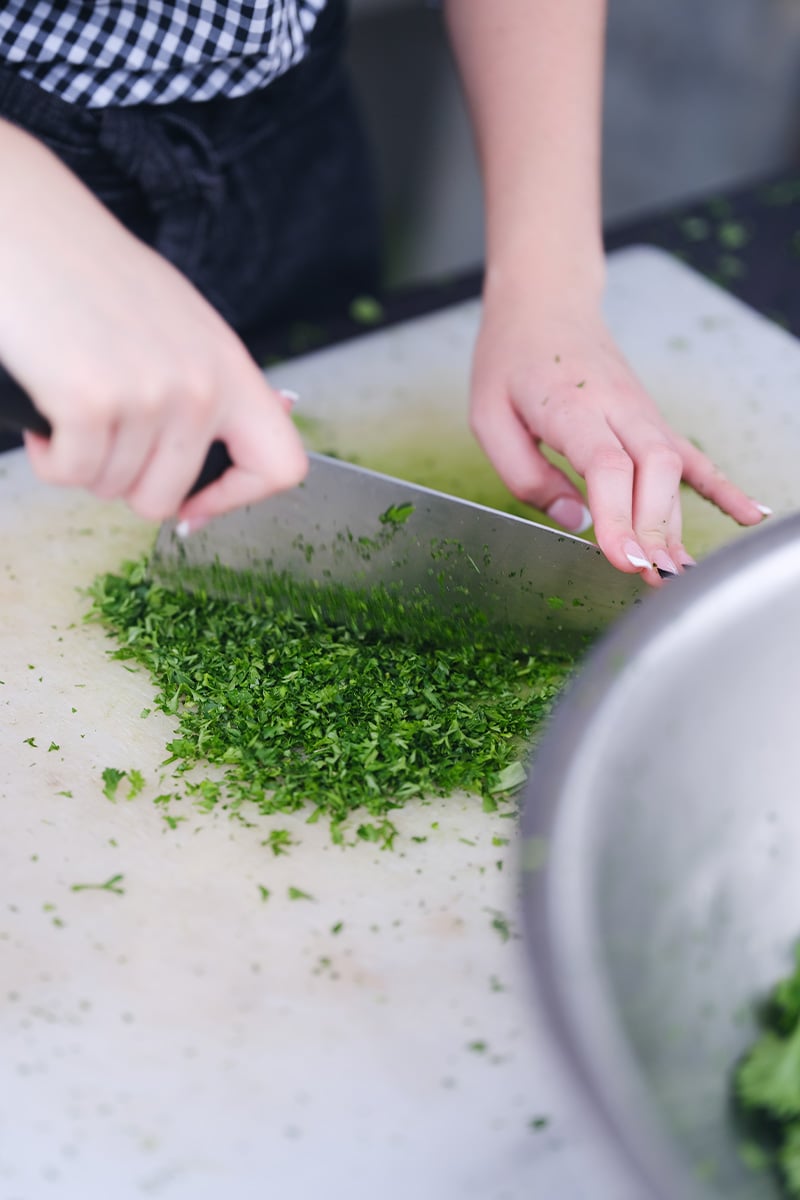
This annual event celebrates regenerative organic agriculture, bringing together individuals who are passionate about farms and farming to honor leaders who devote a lifetime of work to advancing better ways of growing our food. Rodale Institute CEO Jeffrey Tkach described the guests as “a community of people who believe in a better world through agriculture.” This community understands that just as rain—along with sun and soil—transforms a seed into a plant, regenerative organic agriculture can heal and transform tired soil into a robust, healthy medium that nurtures fruits, vegetables and human health.
The rise of chemical-based agriculture in the last century has left much of our farmland saturated with chemical fertilizers, pesticides and herbicides—with resulting consequences of soil health degradation, loss of organic matter and erosion, water pollution and toxic residues in our food supply. Since 1947, when J.I. Rodale, who established the former Rodale Press, founded the Soil and Health Foundation, now known as Rodale Institute, the Institute has promoted a better, natural, more responsible way—an organic way—of farming through consumer education, farmer training and research into cultivation of healthy, living soils that are nutrient-rich and contaminant-free.
While the gathering celebrated the progress that's been made in increasing the practice of regenerative organic farming, it also issued a clarion call to finally fix our farms, sooner rather than later, because the work is not done.
“Children are now sicker than their parents for the first time in history,” said Michelle Perro, MD, keynote speaker at the event. “One out of two children has a chronic disease, and this was unheard of as little as two to three decades ago.” The pediatrician and co-author of What's Making Our Children Sick? attributes this “drastic health change in our lifetime” in large measure to the effects of pesticides that have infiltrated our soil. These chemicals interfere with gut microbiomes—required for healthy function of immune, neurologic and hormonal health—and have been identified as causative agents of autism; they also have been linked to asthma. “We are daily poisoning our kids,” said Perro, who transformed her clinical practice two decades ago to include pesticide and health advocacy.
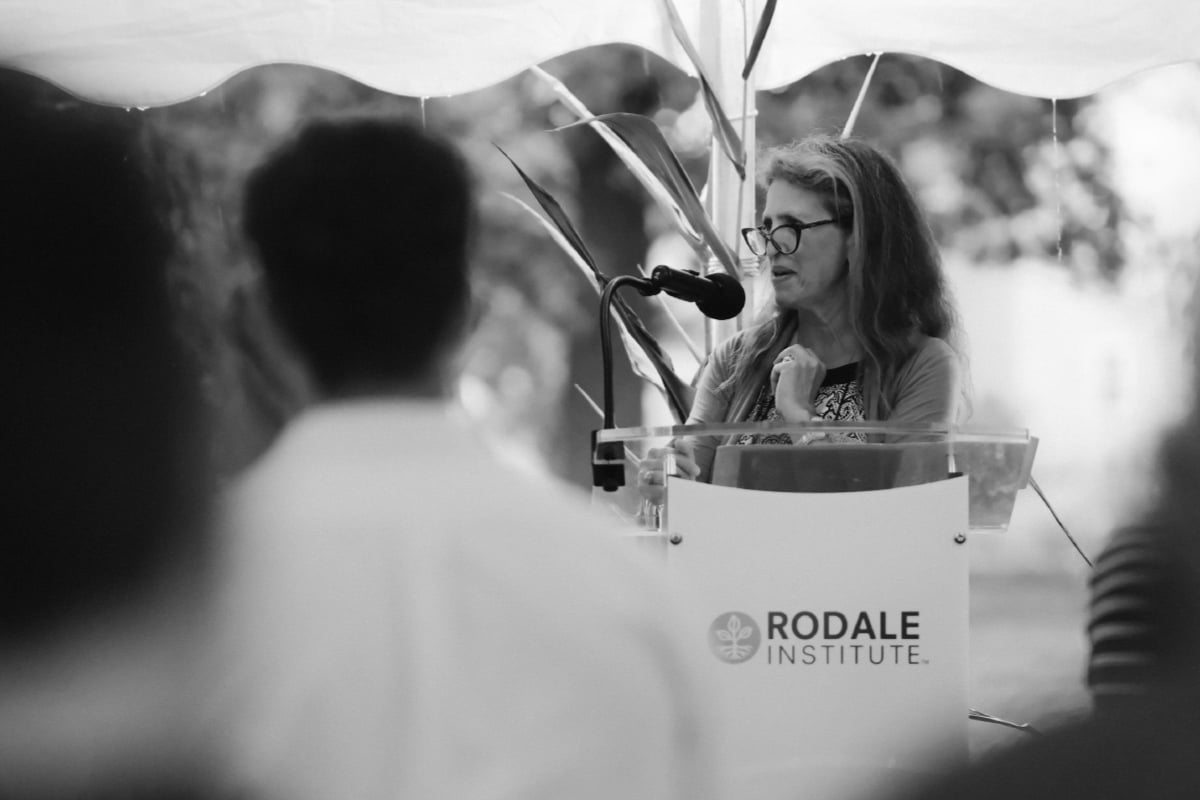
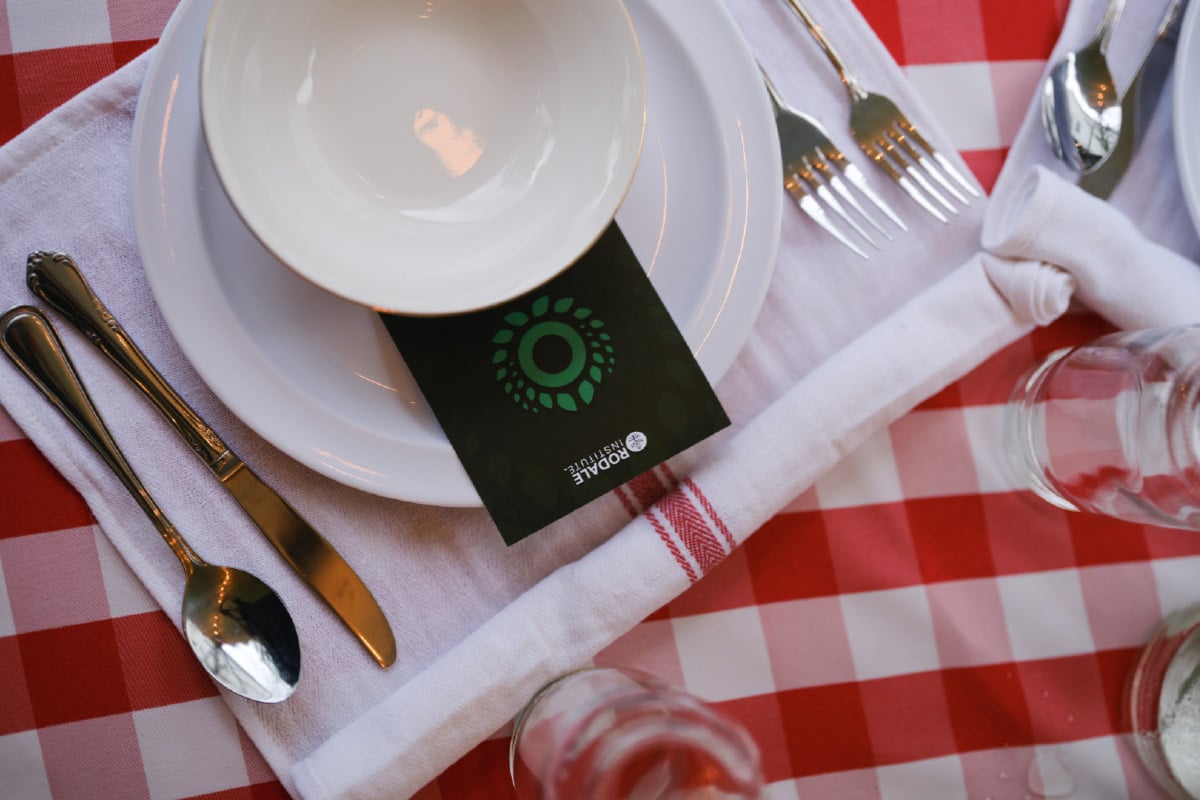

In a panel presentation about the U.S. Farm Bill, Mark Lipson, one of the evening's award recipients, pointed out that the bill—which supports farmers through loans, conservation, safety net and disaster assistance programs—does not address reducing toxins in our food system.
“We need to have a soil health component in the bill,” he said. “There are 1,000 policy elements in the Farm Bill,” Lipson continued, and “90 percent of those reinforce pathologies of the current farm system.” Of the two million farmers in the United States today, Rodale Institute CEO Emeritus Jeff Moyer said 20,000 get most of the federal funds available. These are the same individuals and businesses that have been receiving the funds for 37 years. They are maintaining the status quo, the broken system. “One of the most important things the federal government can do through the Farm Bill to support organic agriculture is to level the playing field,” said Moyer, and distribute funds more equally.
“We are fighting for a new food system,” said Tkach of the Institute's work. “Our education is changing hearts and lives. We have a team of nearly 20 people working across the United States and around the world holding the hands of farmers trying to change to regenerative organic practice,” he said. “If there's one thing we know for sure, it's that organic agriculture is essential to humanity's survival.”
In a conversation about farming, there's inevitably a turn to food. It is, after all, the point. And at the awards event, it was the focal point. “Healing begins around a table,” said Tkach. “We can have a better world, and it happens with food around a table.”
We are fighting for a new food system.
Under the event tent—its long tables set with white cloths and the farm's wildflowers—breaking bread together affirmed the power of food. The evening's bounty that hailed from the Institute featured brilliant vegetables from the gardens, flavorful chicken from the farm and crunchy apples from the orchard. Food was a common language, a demonstrable language that spoke to the results of soil health and sustainable agricultural practice.
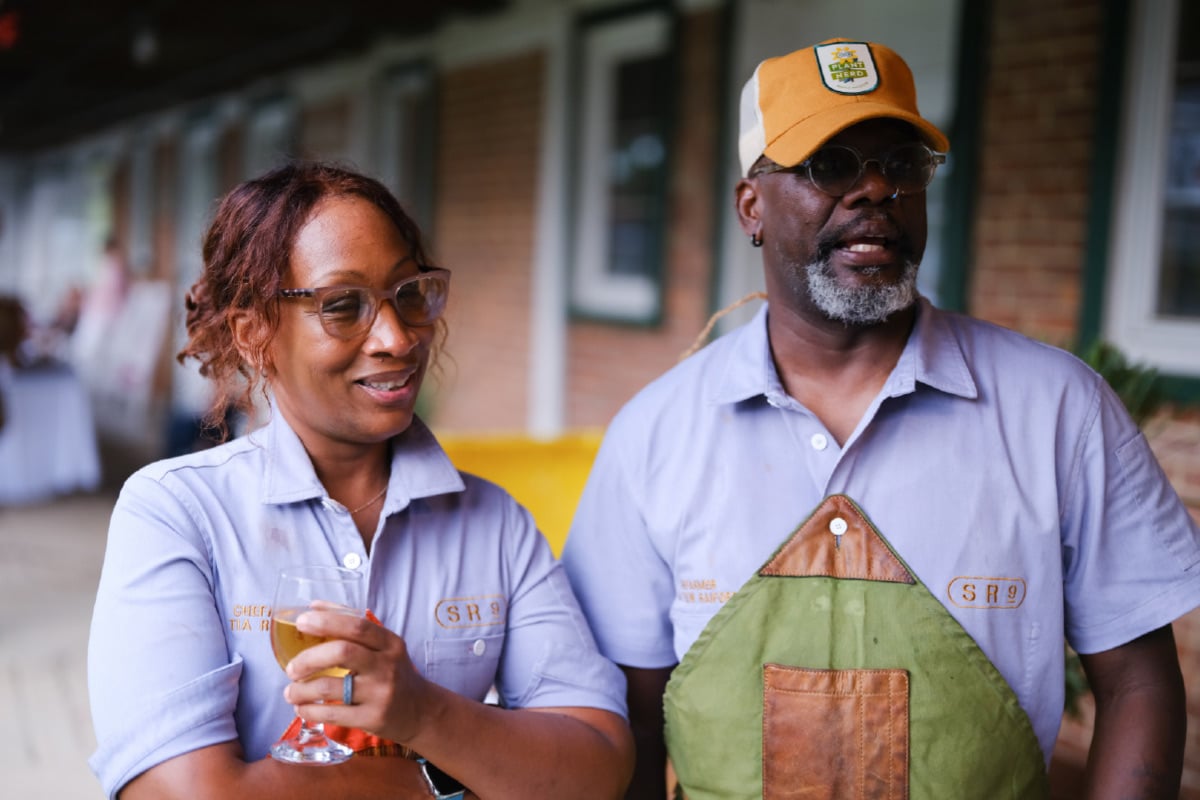
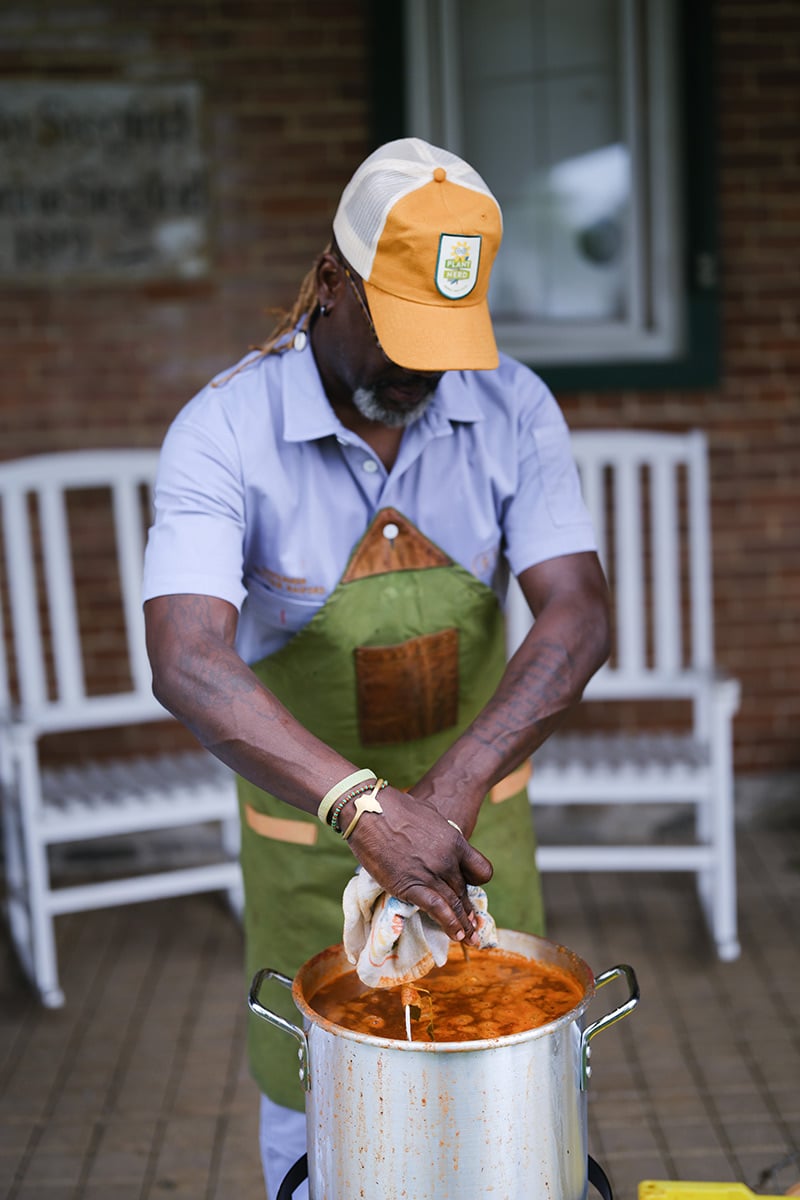
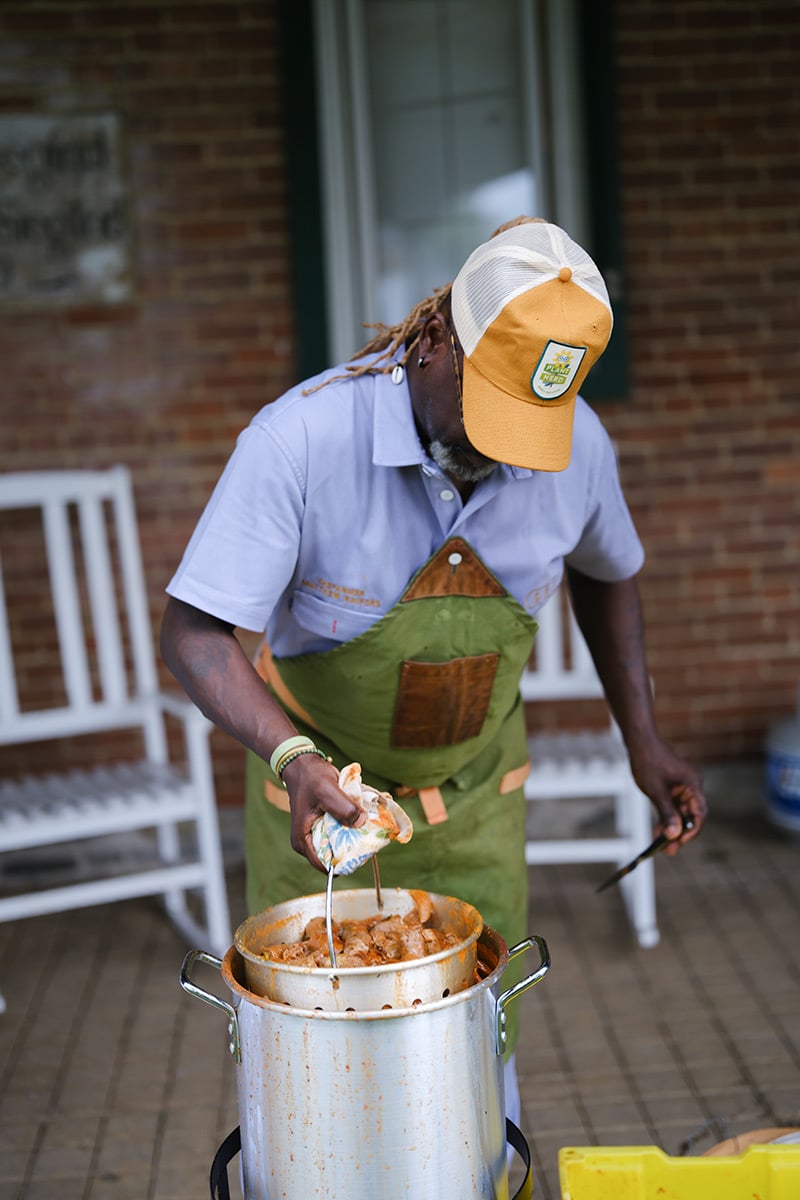
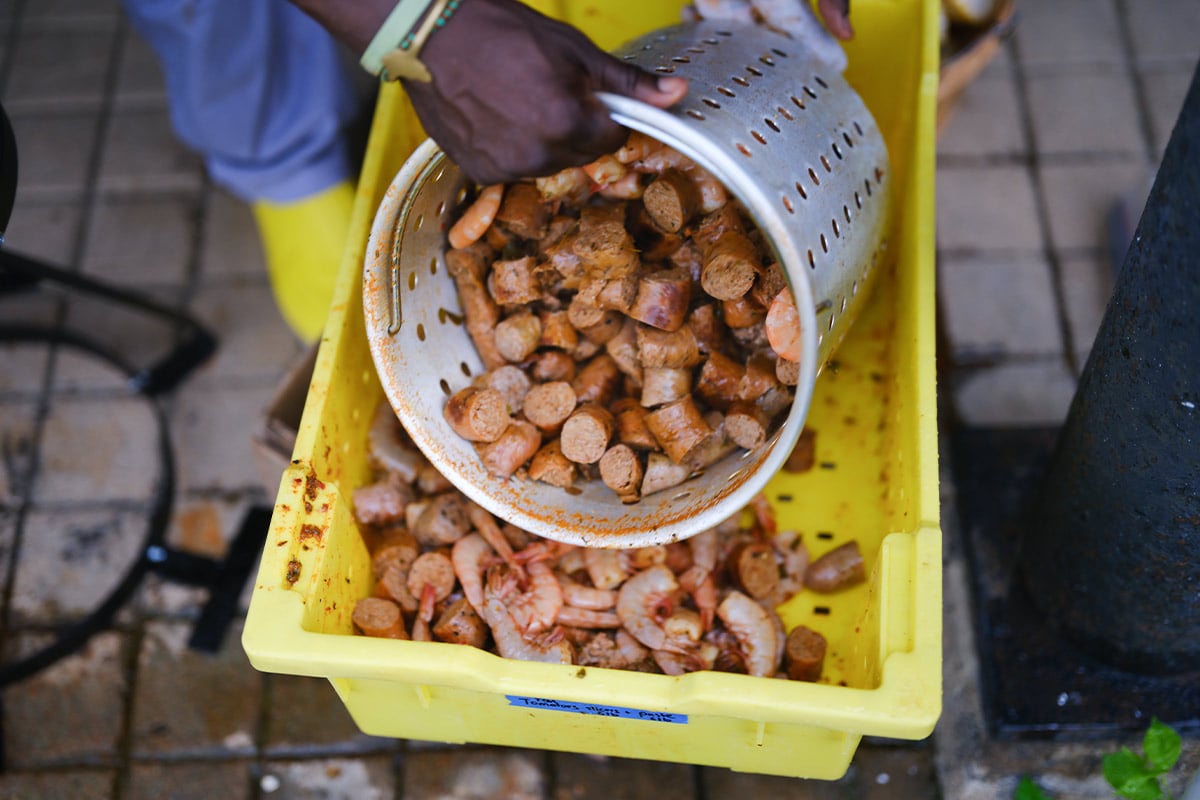
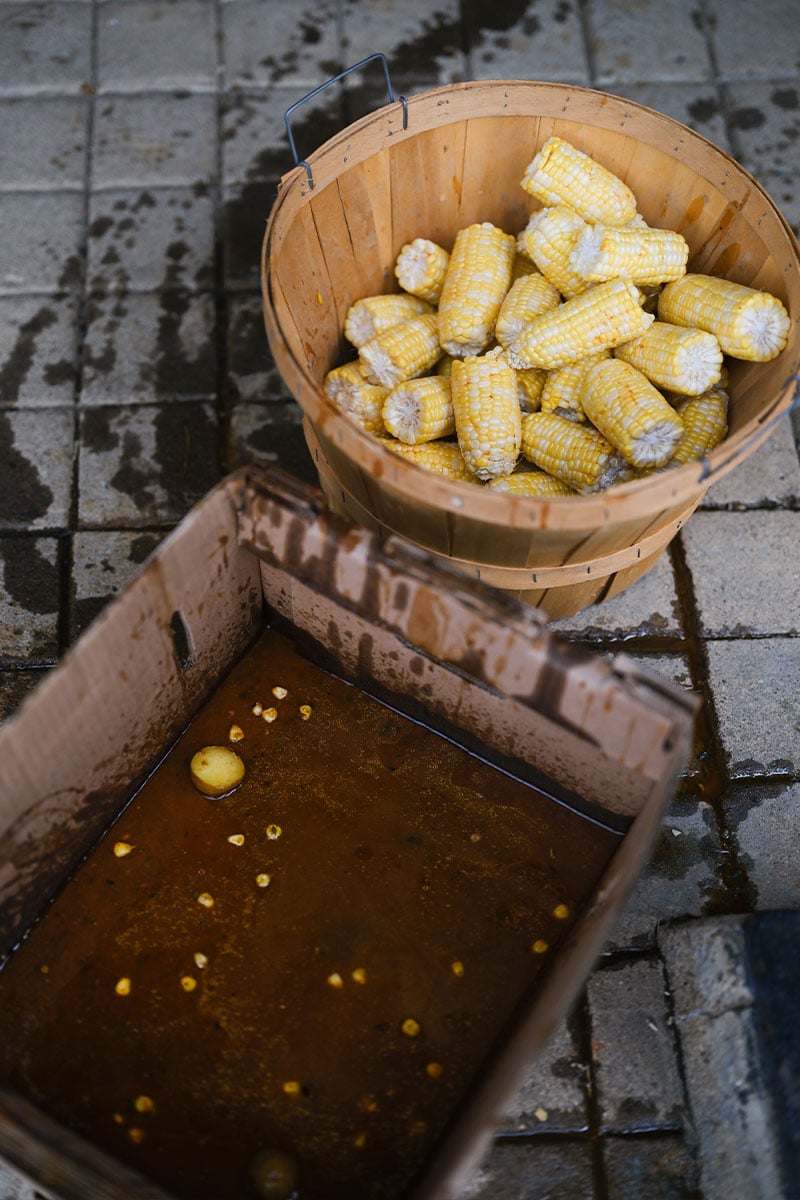
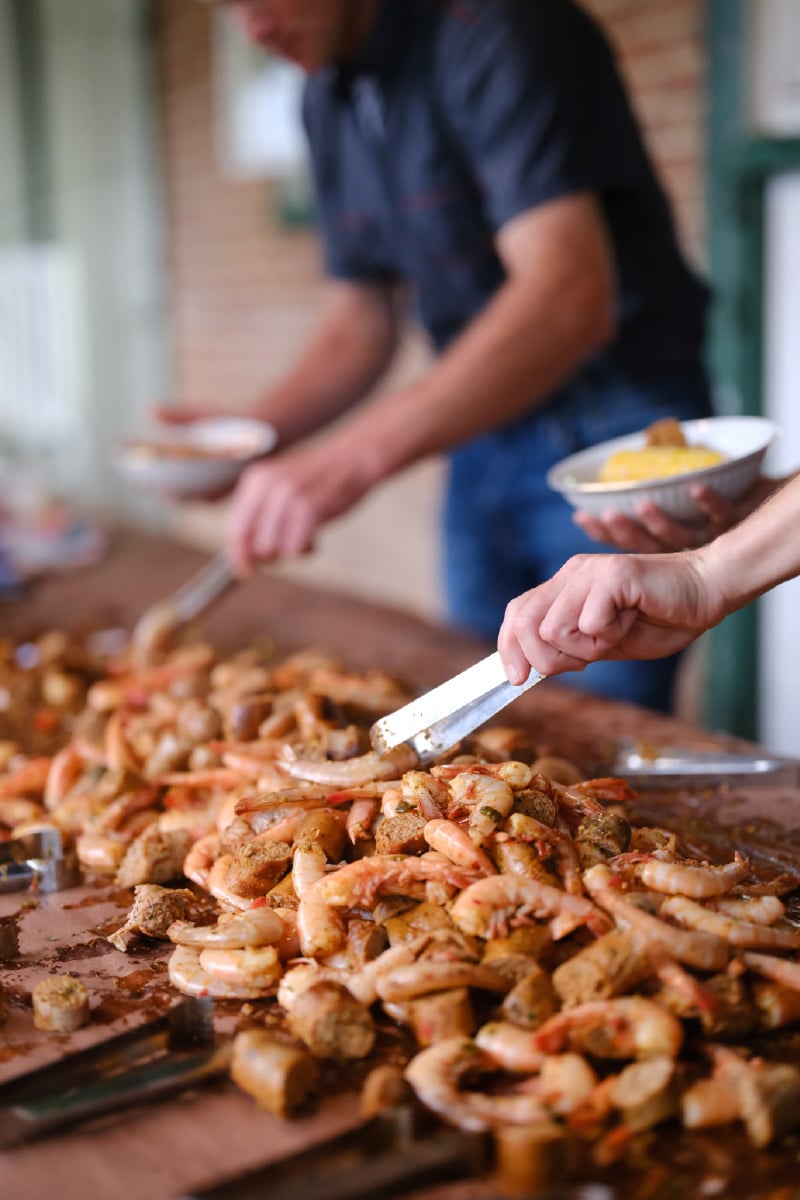
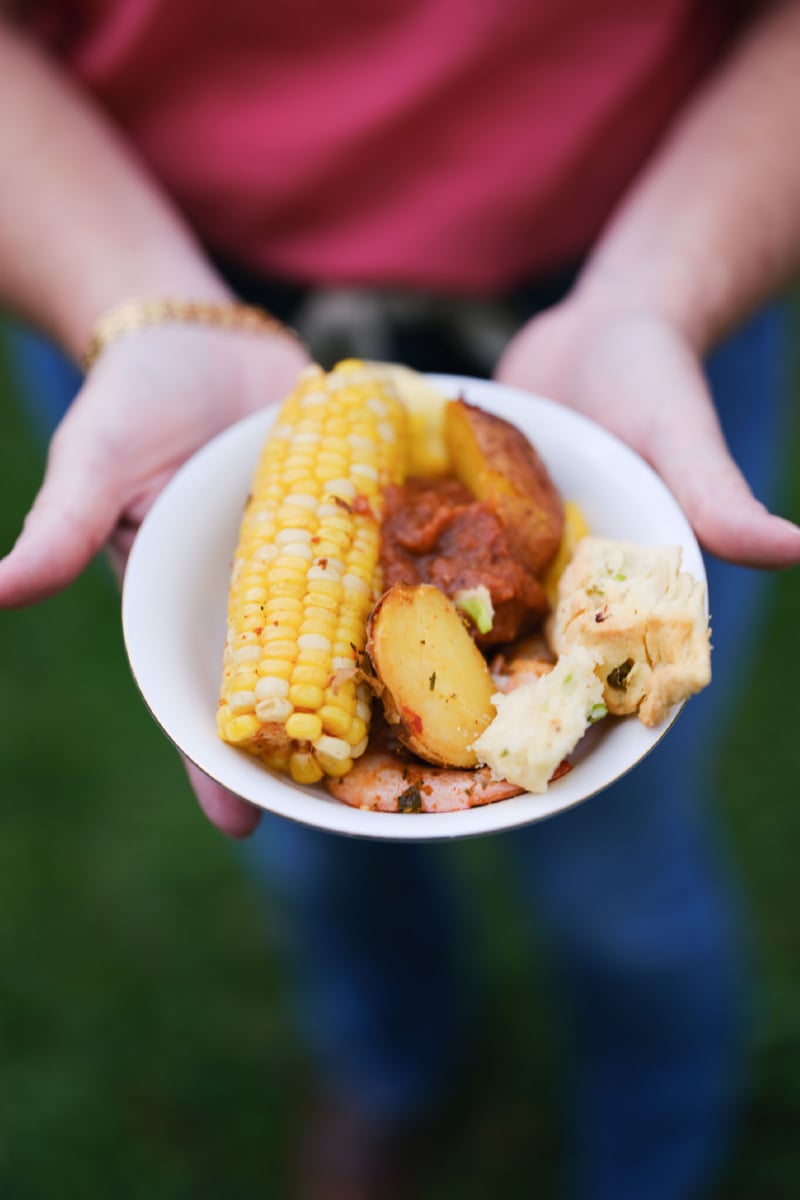
A Low Country boil, prepared by Matthew and Tia Raiford, chefs and farmers of Gilliard Farms in Brunswick, GA, started the feast. With wild-caught shrimp and sausage they brought from Georgia, the one-pot Southern meal, cooked with spicy seasoning, also included Pennsylvania corn and Rodale farm potatoes. A salad, inspired by the farm's garden harvest that day, featured shaved acorn and kabocha squashes with sweated leeks, mushrooms and fresh herbs. The Raifords have partnered with Rodale Institute as chef ambassadors since 2021, promoting regenerative organic agriculture through food and farming.
The evening's abundance continued with a symphony of summer bounty orchestrated by Erik Oberholtzer, a member of the Institute's board of directors, that featured the farm's vegetables along with herbs and edible flowers from his own Princeton, NJ, farm. This chef and co-founder of Tender Greens, a collection of 24 California restaurants, focuses his cooking on celebrating just-picked produce at its peak. In each dish that paraded down the buffet table—tomato cucumber salad, red cabbage and red beets, charred Walla Walla onions, ratatouille salad and broccoli with charred leeks—his goal was “to express the inherent flavor of the food.”
From Kirsch McMaster, chef with Dundore and Heister, a craft butcher in Wyomissing, came Rodale farm chickens fire-roasted over hardwood oak, served with a salsa of fire-roasted chilis and corn, grated and scraped to release the cobs' milk, enhanced with lime juice and cilantro. Chimichurri sauce saturated with lots of farm-raised fresh herbs brightened fire-roasted whole prime rib, pasture-raised on a co-op of small farms near Happy Valley.
McMaster, who cooks with a farm-to-table ethos and nose-to-tail philosophy, also refreshed an old Pennsylvania Dutch recipe to create the evening's sweet ending, apple rumble crumble—apples from the Rodale farm mixed with dark brown sugar and garam masala topped with vegan, gluten-free crisp and garam masala whipped cream.
While the dinner and celebration came to a sweet end that September night, the Institute's work did not. “We have so many problems to solve,” said Lipson when he accepted the Organic Stewardship Award. “Organic won't solve it all, but we can't solve them without going organic… We are in a tremendously exciting new moment that Rodale is leading… I am a farmer and somehow genetically optimistic. Rodale is one of the places bringing hope—a better way of farming.”
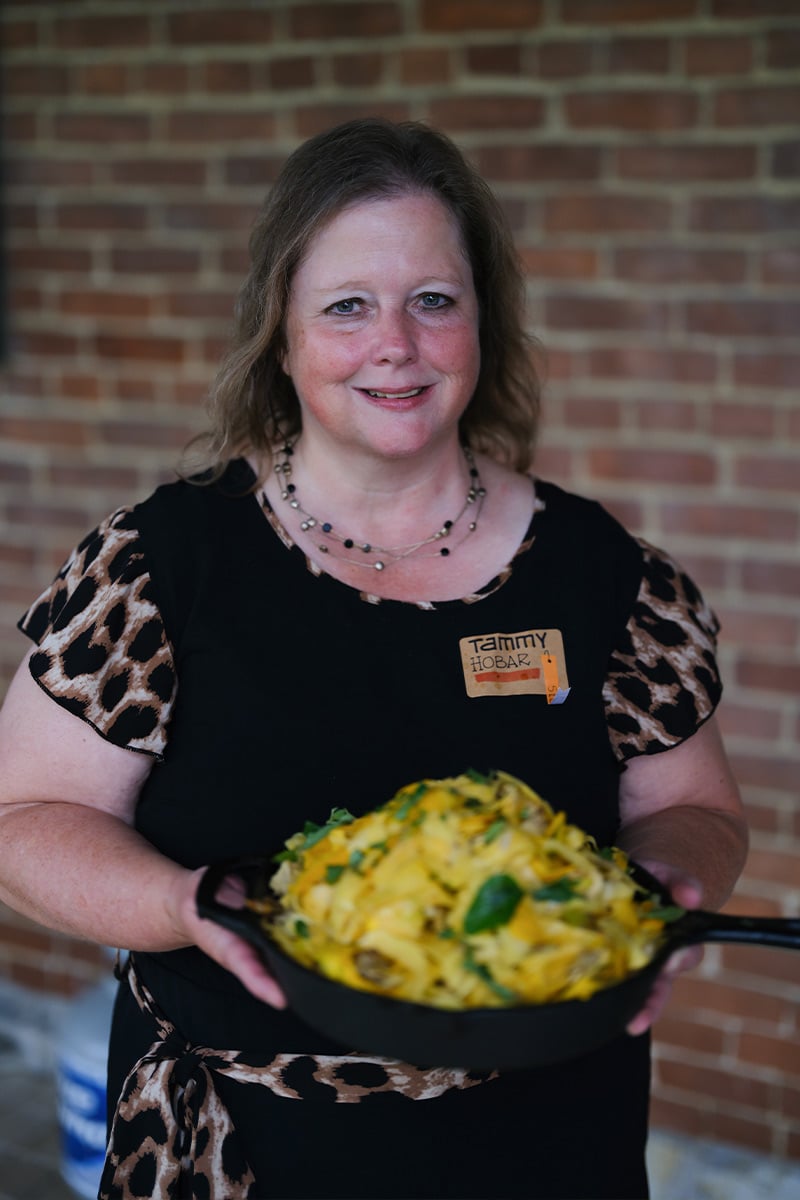
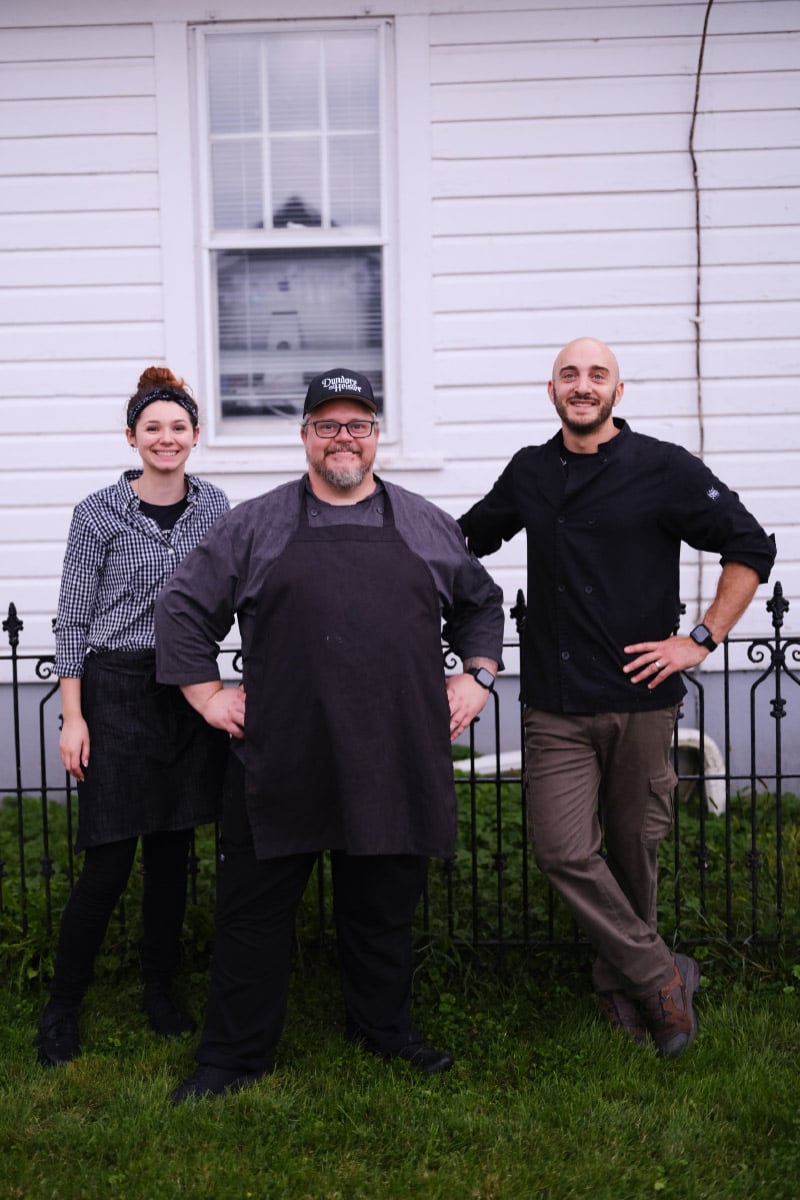
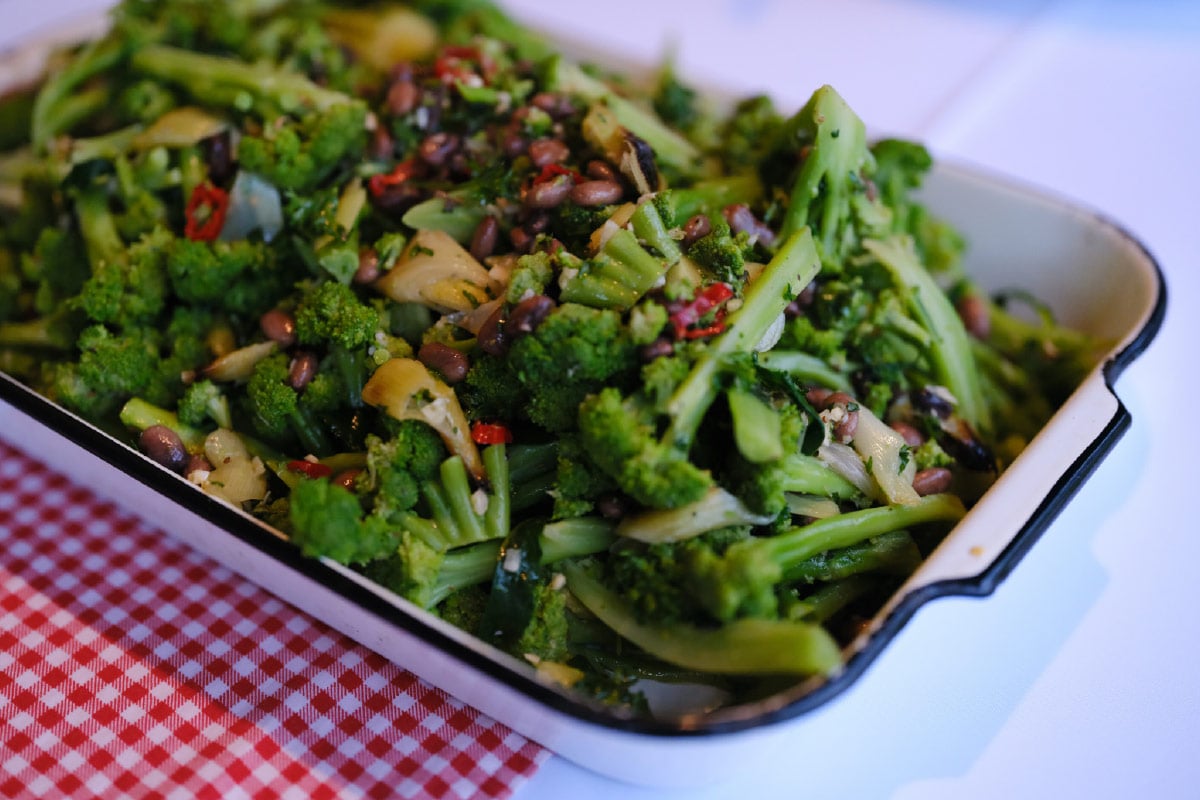
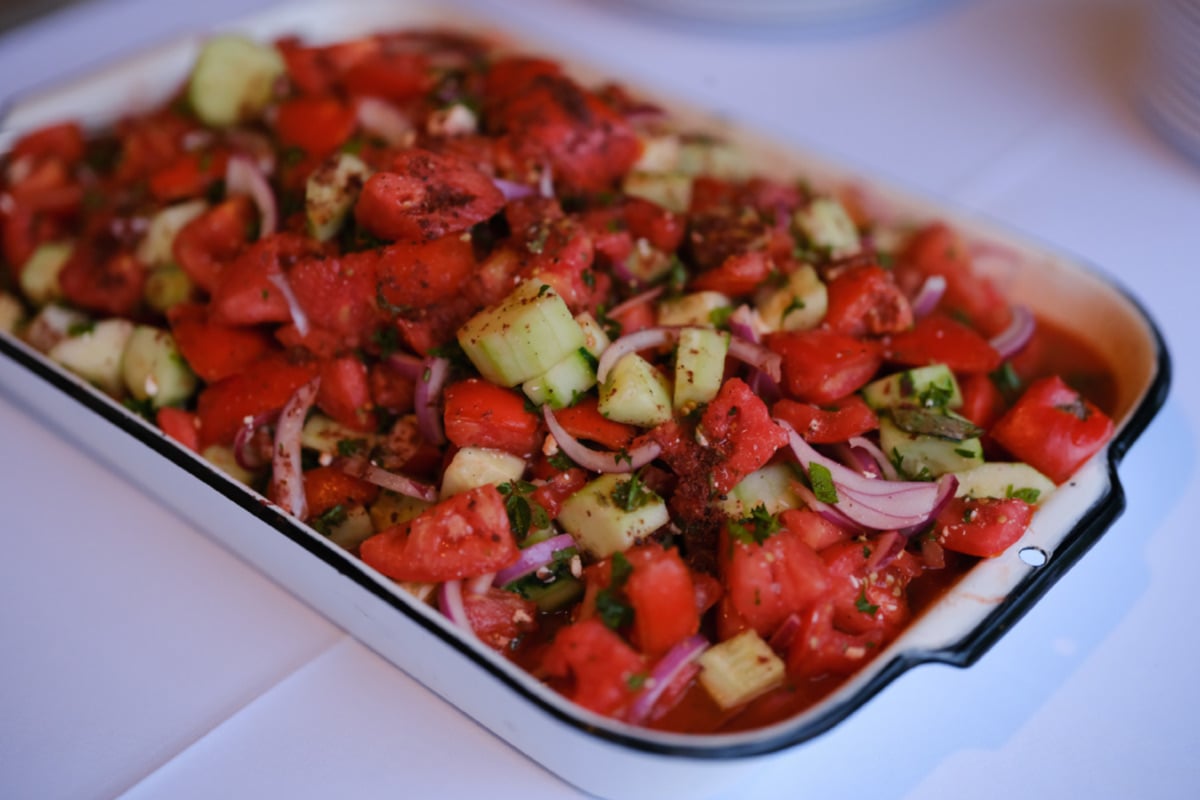
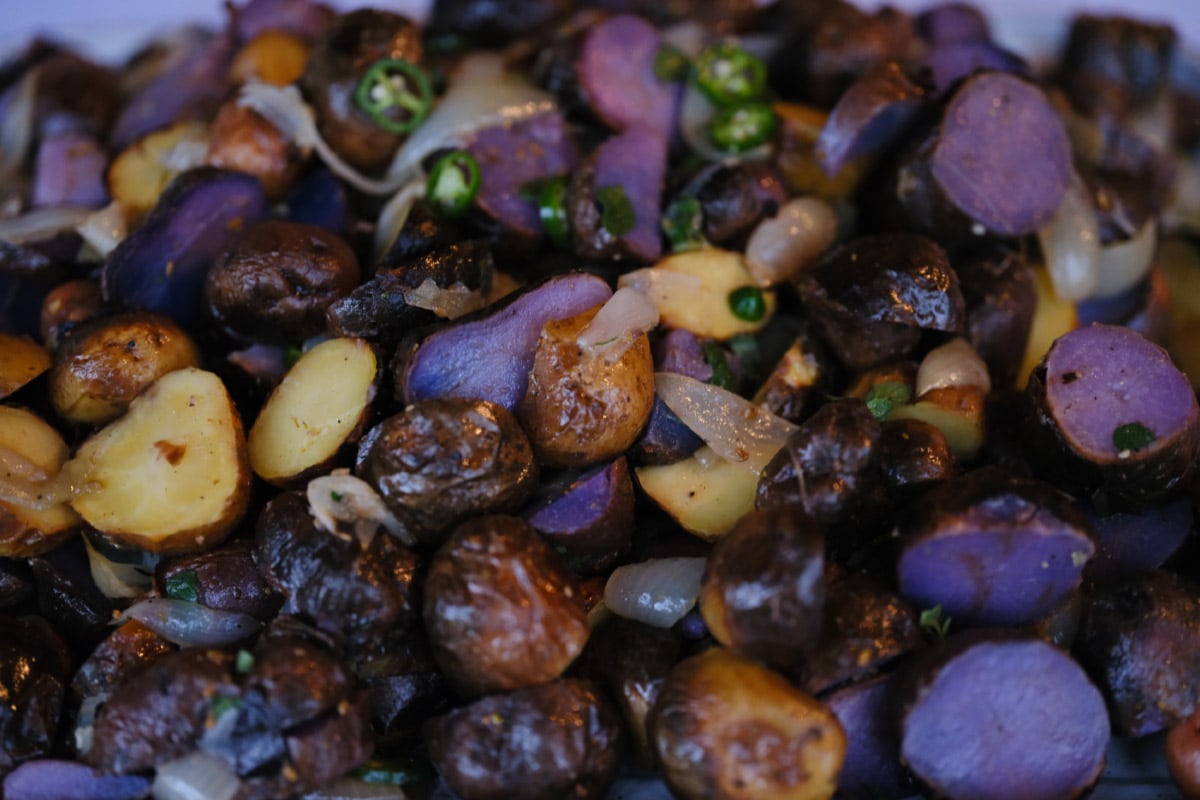
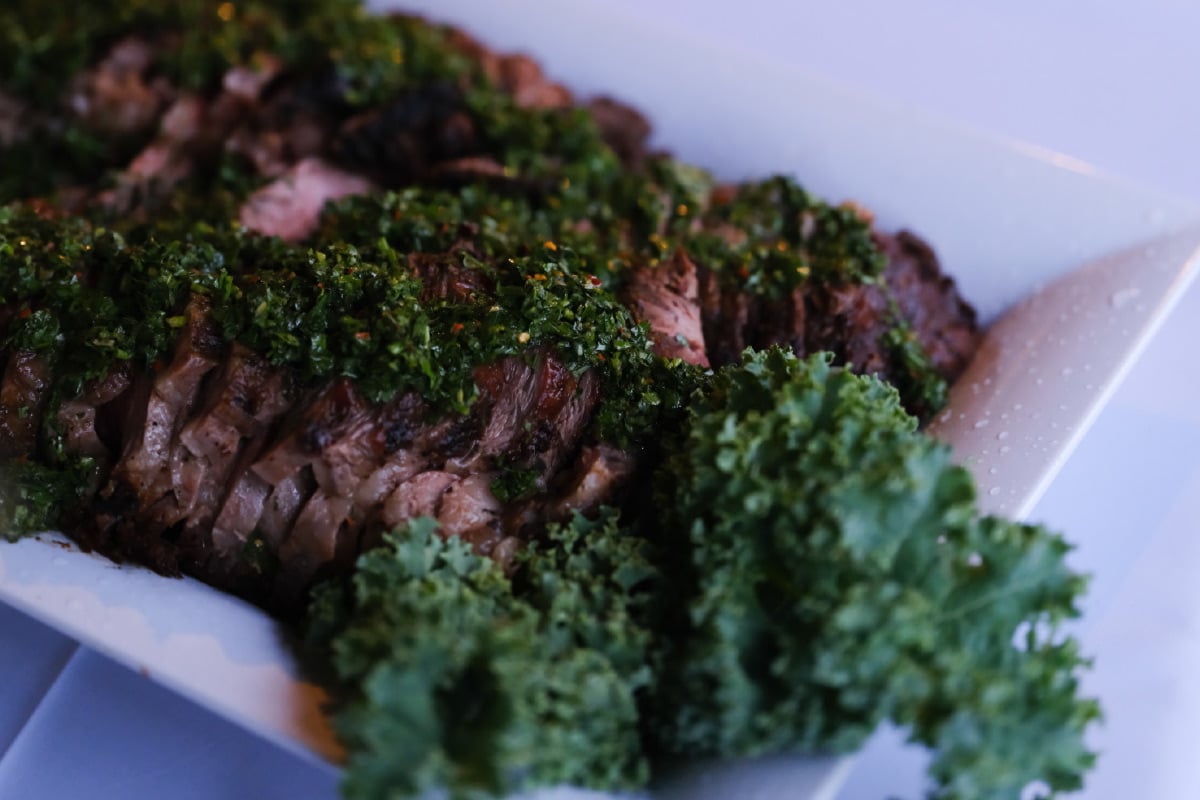
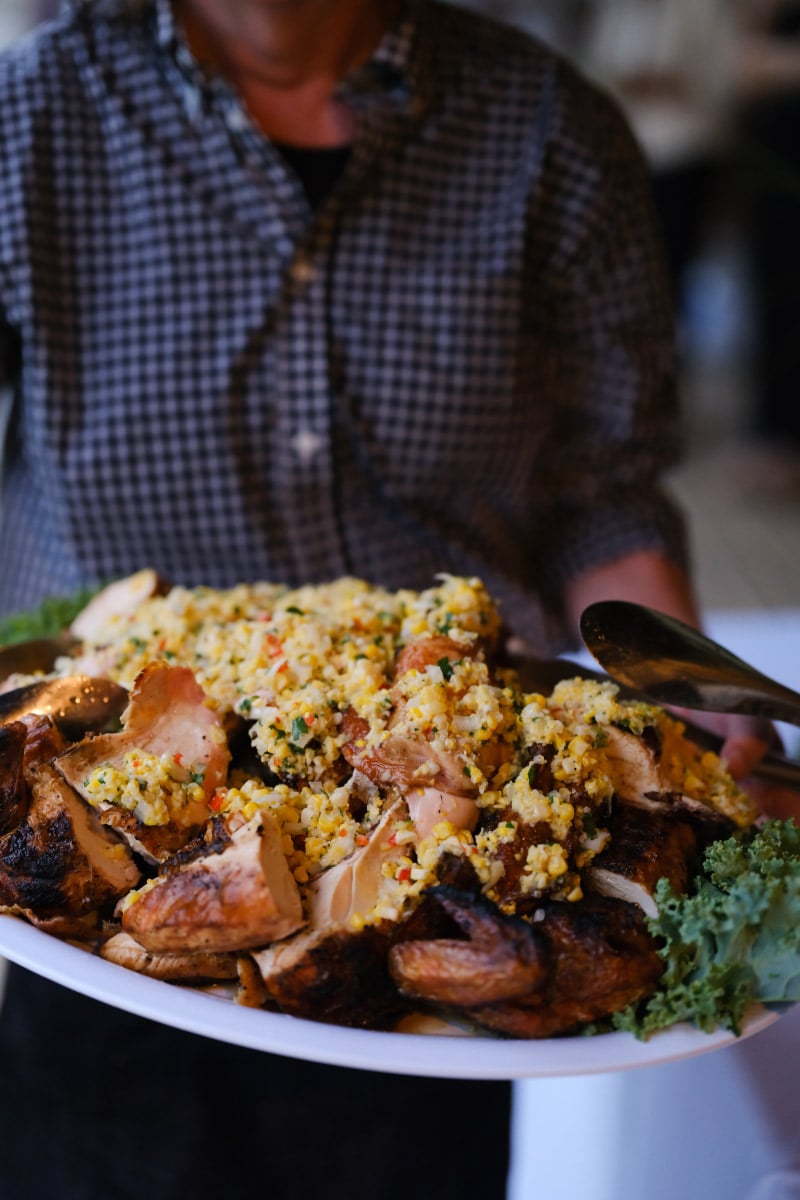
Published as "Fixing America's Farms: Rodale Institute Honors Work of Lifelong Leaders Advancing Regenerative Organic Farming" in the April 2024 edition of Lehigh Valley Style magazine.















